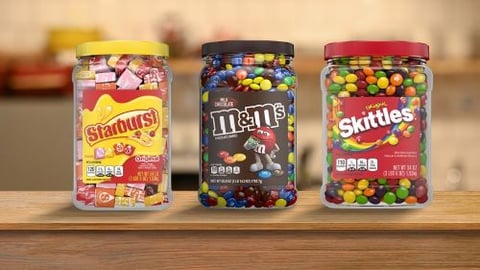5 Ways Grocers Can Help Save the Planet
Our poor planet — it’s awash in garbage. Consider these facts:
- Food waste: Households, retail establishments and the foodservice industry waste 931 million tons every year, according to a United Nations Environment Programme report. Grocery stores throw out about 30% of food on shelves.
- Plastic: 85% of what’s produced for packaging (including single-use plastic for food and beverage containers) ends up in landfills or as unregulated waste, according to another UN Environment Programme report.
[Read more: "Sustainability Is Still the Gold Standard for Shoppers"]
These are some grim statistics. But in my work helping food retailers in Europe — and now increasingly in America — adopt zero-waste systems, I’m witnessing how innovative grocers can help clean up the world. Reducing waste is the responsible thing to do, and there’s evidence that it’s good for business, too. Here are five ways that innovative grocers can cut down on food and packaging waste:
- Better manage near-expiring foods. Stop losing money on expired dairy products and other food. Expiration date-tracking technology can give you greater visibility into soon-to-expire food by automating the manual checking of product expiration dates. With this advanced knowledge, grocery stores can better manage inventory and lower prices on and sell stock that’s nearing expiration. Further, educate your shoppers with prominent displays on how to interpret expiration dates, e.g. “sell by,” “use by,” “expires on,” “best before” and “best by.” That’ll help them figure out what’s safe to buy and eat. The result: You boost sales and lower your contribution to landfills. Another tool to check out is food waste prevention tech. For instance, Too Good To Go helps food retailers “recoup sunk costs” and cut food waste via its business-to-consumer app. It works like this: Stores list unsold food via the app; then shoppers come and pick up their “surprise bag” for a reduced price.
- Give customers tools to help them stop wasting food. A 2022 Capgemini study found that 72% of consumers are more conscious about their own level of food waste post-COVID, and 61% want brands, stores and supermarkets to do more to help reduce food waste. One way to help shoppers: Install package-free solutions such as bins that dispense dry foods (e.g., cereal, coffee and nuts). The bins enable shoppers to buy only what they need. Plus you give customers a new tool to cut food costs (a huge inflation buster). Another benefit: Advanced systems allow grocers to fill and refill food touch-free, and thus avoid spreading germs.
- Help shoppers cut plastic waste, too. Consumers want to reduce plastic use. In fact, a 2022 Ipsos poll of more than 23,000 people across 34 countries found an average 75% support global rules banning unnecessary single-use plastics. That’s great, but your customers most likely buy detergent and shampoo in single-use plastic containers. Zero-waste systems that dispense liquid products enable shoppers to refill using their own containers.
- Sell “imperfect” food. Have you tried unsuccessfully to sell lower-priced bruised bananas or wonky-shaped carrots? Maybe now, with grocery prices up 11.8% annually, according to USDA data, it’s time to try again. The Capgemini study of 10,000 consumers across the globe found that 62% buy “visually imperfect produce at a lower price point.” Here’s a tip: Label your displays as “ugly” produce to help convince shoppers that the only thing “wrong” with these fruits and vegetables is their aesthetics. They’re perfectly good to eat.
- Embrace eco-packaging. Stay educated about and, where it makes sense, buy products made with earth-friendly packaging material. For example, did you know that KraftHeinz is creating a paper-based bottle (sourced from wood pulp) for its iconic ketchup and eventually plans testing it with consumers? Last year, Kellogg tested paper liners in Corn Flakes boxes at select Tesco stores in the United Kingdom, part of an effort by the company to make all of its packaging 100% reusable, recyclable or compostable by year-end 2025.
Capgemini’s research shows that many consumers will boost their spend with companies that are actively managing food waste. Further, they’ll become loyal customers and tell others to do the same. These are real benefits that I’ve seen grocers gain from implementing waste reduction strategies, including zero-waste food dispensing.
Be kind to the planet and help your customers be more sustainable. After all, it’s good for your business.






